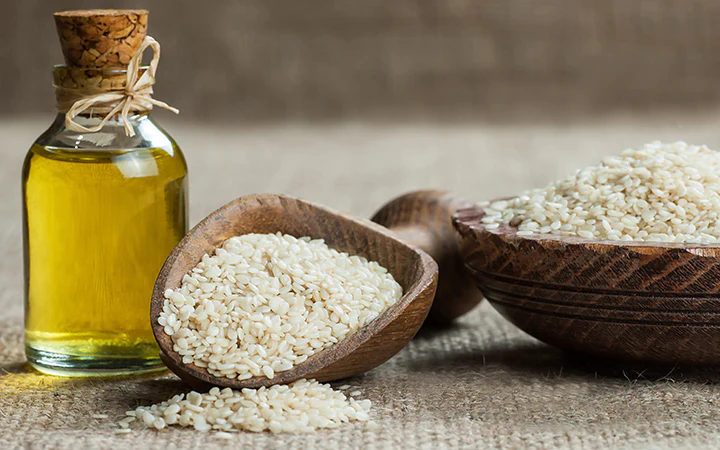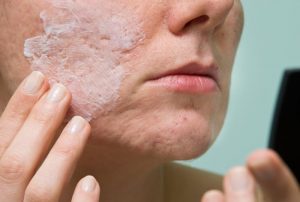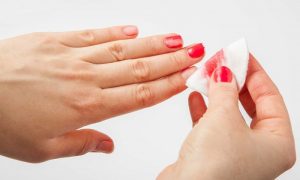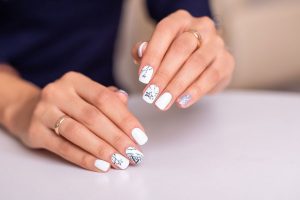
Lemon Juice for Acne Scars
Acne scars can be a frustrating reminder of past breakouts, affecting both our appearance and self-confidence. Many people seek natural remedies to help fade acne scars, and one such remedy that has gained popularity is lemon juice. Lemon juice is known for its acidic properties and potential skin benefits. In this article, we will explore the use of lemon juice for acne scars and whether it can be an effective treatment option.
Acne scars are the result of inflamed acne lesions that have caused damage to the skin tissue. They can vary in appearance, from shallow depressions to deep, pitted scars. While there are various treatments available for acne scars, some individuals prefer to explore natural alternatives. Lemon juice, with its acidic properties and high vitamin C content, is believed to help fade acne scars and improve overall skin appearance.
Understanding Acne Scars
Before delving into the potential benefits of lemon juice for acne scars, it’s essential to understand the different types of acne scars. Acne scars can be categorized into two main types: atrophic scars and hypertrophic scars. Atrophic scars are characterized by depressions or pits in the skin, while hypertrophic scars are raised and usually occur in more severe cases of acne.
The Science Behind Lemon Juice
Lemon juice contains citric acid, a natural exfoliant that can help remove dead skin cells and promote cell turnover. Additionally, lemon juice is rich in vitamin C, which is known for its antioxidant properties and ability to boost collagen production. Collagen is a protein that plays a vital role in maintaining the skin’s elasticity and promoting the healing of wounds.
How Lemon Juice Helps with Acne Scars
When applied topically, lemon juice can help lighten the appearance of acne scars. The citric acid in lemon juice exfoliates the skin gently, helping to remove dead skin cells and promote the growth of new, healthier skin cells. The vitamin C content aids in collagen synthesis, which can improve the texture and smoothness of the skin over time.
However, it’s important to note that lemon juice should be used with caution, as it can cause skin irritation and sensitivity in some individuals. It is recommended to do a patch test on a small area of skin before applying lemon juice to the entire face.
Precautions and Side Effects
While lemon juice can be beneficial for some individuals, it may not be suitable for everyone. Those with sensitive skin or existing skin conditions, such as eczema or rosacea, should avoid using lemon juice directly on their skin, as it can worsen irritation and redness. Furthermore, lemon juice makes the skin more sensitive to sunlight, so it is crucial to apply sunscreen when using lemon juice as a part of your skincare routine.
Other Natural Remedies for Acne Scars
Apart from lemon juice, several other natural remedies can potentially help fade acne scars. These include aloe veragel, honey, rosehip oil, and tea tree oil. Each of these remedies has its own unique properties and benefits for the skin. It’s essential to find the right remedy that suits your skin type and sensitivity.
Incorporating Lemon Juice into Your Skincare Routine
If you decide to try lemon juice for your acne scars, it’s important to know how to incorporate it into your skincare routine properly. Start by diluting the lemon juice with equal parts water to reduce its acidity and minimize the risk of skin irritation. Apply the mixture to cleansed skin using a cotton ball or pad, focusing on the areas with acne scars. Leave it on for 10-15 minutes, then rinse thoroughly with water and follow up with a moisturizer. It’s best to do this treatment in the evening to avoid sun exposure immediately after application.
Testimonials and Success Stories
Many individuals have reported positive results from using lemon juice for acne scars. However, it’s important to remember that everyone’s skin is unique, and what works for one person may not work for another. It’s always a good idea to consult with a dermatologist or skincare professional before trying any new treatment to ensure it’s suitable for your skin.
Expert Advice on Using Lemon Juice for Acne Scars
To gain further insights into the use of lemon juice for acne scars, we reached out to Dr. Sarah Thompson, a renowned dermatologist specializing in skincare. According to Dr. Thompson, “Lemon juice can be a useful natural remedy for acne scars, thanks to its exfoliating and brightening properties. However, it’s crucial to be cautious and avoid using it undiluted or on sensitive skin. Patch testing is essential, and if any irritation occurs, discontinue use immediately.”
Potential Benefits of Lemon Juice for Acne Scars
Lemon juice has gained popularity as a potential treatment for acne scars due to several beneficial properties it possesses:
- Natural exfoliation and skin brightening: The citric acid in lemon juice acts as a natural exfoliant, helping to remove dead skin cells and promote the growth of new, healthier skin cells. This exfoliation can contribute to a smoother and brighter complexion, potentially reducing the appearance of acne scars.
- Lightening dark spots and hyperpigmentation: Lemon juice has natural bleaching properties, which may help lighten dark spots and hyperpigmentation caused by acne scars. Its acidic nature can aid in fading discoloration and promoting a more even skin tone.
- Promoting collagen production and skin healing: Lemon juice is rich in vitamin C, which plays a crucial role in collagen synthesis. Collagen is a protein that helps support the structure of the skin and aids in the healing process. By promoting collagen production, lemon juice may contribute to the improvement of acne scars over time.
How to Use Lemon Juice for Acne Scars
- Precautions and patch testing: Before applying lemon juice to your face, it’s essential to take certain precautions. Lemon juice can cause skin irritation and sensitivity, especially for those with sensitive skin. Conduct a patch test by applying a small amount of diluted lemon juice to a small area of skin and observe for any adverse reactions. If irritation occurs, discontinue use.
- DIY lemon juice remedies and recipes: There are various DIY recipes incorporating lemon juice for acne scars. One simple method is to dilute lemon juice with equal parts water and apply it to the affected areas using a cotton ball or pad. Leave it on for 10-15 minutes, then rinse off with water. It’s important to dilute the lemon juice to reduce its acidity and minimize the risk of skin irritation.
Safety Considerations and Possible Side Effects
While lemon juice offers potential benefits for acne scars, it’s important to consider safety precautions and possible side effects:
- Skin irritation: Lemon juice’s acidity can cause skin irritation, especially for those with sensitive skin. It’s crucial to dilute lemon juice with water and monitor your skin’s response. If you experience any redness, stinging, or discomfort, discontinue use.
- Photosensitivity: Lemon juice can make the skin more sensitive to sunlight. After using lemon juice on your skin, it’s important to apply sunscreen and avoid prolonged sun exposure to minimize the risk of sunburn or further skin damage.
Alternative Treatments for Acne Scars
While lemon juice may be a natural option for treating acne scars, there are other alternatives to consider:
- Professional treatments: Professional treatments like laser therapy, chemical peels, microdermabrasion, or microneedling can offer more targeted and effective results for acne scars. Consult with a dermatologist to explore these options and determine the most suitable treatment for your specific situation.
- Natural remedies: Apart from lemon juice, other natural remedies like aloe vera gel, honey, rosehip oil, and tea tree oil have potential benefits for acne scars. Each remedy has its unique properties, and it’s worth experimenting to find the one that works best for your skin.
Expert Opinions and Scientific Research
While there is anecdotal evidence supporting the use of lemon juice for scar reduction, scientific research on its specific efficacy for acne scars is limited. More comprehensive studies are needed to establish its effectiveness and safety. It’s advisable to consult with skincare professionals or dermatologists who can provide expert advice tailored to your individual needs. They can offer guidance on the most effective treatments based on scientific research and their clinical experience.
How to Apply Lemon Juice for Acne and Scarring
When using lemon juice for acne and scarring, it’s important to follow these steps for proper application:
- Dilute the lemon juice: Lemon juice is highly acidic, so it’s crucial to dilute it with equal parts water or another gentle liquid, such as rosewater or aloe vera gel. This helps reduce the risk of skin irritation and sensitivity.
- Cleanse your face: Before applying lemon juice, cleanse your face thoroughly with a gentle cleanser to remove any dirt, oil, or makeup. Pat your skin dry with a clean towel.
- Patch test: Perform a patch test by applying a small amount of the diluted lemon juice mixture to a small area of skin, such as the inner forearm. Leave it on for about 10-15 minutes and observe for any signs of redness, itching, or irritation. If there is no adverse reaction after 24 hours, you can proceed with using lemon juice on your face.
- Apply the mixture: Using a cotton ball or pad, apply the diluted lemon juice mixture to the affected areas of your face with acne or scarring. Gently dab or swipe the cotton ball, ensuring even coverage. Avoid the delicate eye area.
- Leave it on for a limited time: It’s best to leave the lemon juice mixture on your skin for a maximum of 10-15 minutes. Leaving it on for too long can increase the risk of skin irritation and sensitivity.
- Rinse off thoroughly: After the recommended time, rinse your face with lukewarm water to remove the lemon juice mixture completely. Make sure there is no residue left on your skin.
- Moisturize: Follow up with a moisturizer suitable for your skin type. Moisturizing helps replenish hydration and maintain the skin’s moisture barrier, preventing dryness or irritation.
Tips to Remember While Using Lemon Juice on Your Skin
Here are some important tips to keep in mind when using lemon juice on your skin:
- Always dilute: Lemon juice should never be applied directly to the skin as it can be too harsh and cause irritation. Dilute it with equal parts water or other gentle liquids to reduce its acidity.
- Perform a patch test: Before applying lemon juice to your face, conduct a patch test to check for any adverse reactions. This step helps determine if your skin is sensitive to lemon juice.
- Protect your skin from sunlight: Lemon juice can make your skin more sensitive to sunlight. It’s crucial to apply sunscreen with a sufficient SPF before going outside to prevent sunburn and further skin damage.
- Avoid contact with eyes: Lemon juice can cause stinging and irritation if it comes into contact with your eyes. Take care to avoid the eye area when applying the mixture.
- Monitor your skin’s response: Everyone’s skin reacts differently to lemon juice. If you experience any redness, itching, burning, or discomfort, discontinue use immediately and consult a dermatologist.
Side Effects of Applying Lemon to the Skin
While lemon juice can have potential benefits for the skin, it’s important to be aware of possible side effects:
- Skin irritation and sensitivity: Lemon juice’s acidity can cause skin irritation, especially for those with sensitive skin. It may lead to redness, itching, stinging, or a burning sensation.
- Dryness and excessive oiliness: Lemon juice can disrupt the skin’s natural moisture balance, leading to dryness or excessive oiliness. It’s essential to moisturize your skin after using lemon juice to maintain its hydration.
- Photosensitivity: Lemon juice can make your skin more sensitive to sunlight, increasing the risk of sunburn and skin damage. Ensure you protect your skin by wearing sunscreen and minimizing sun exposure.
- Allergic reactions: Some individuals may be allergic to lemon juice, experiencing allergic reactions such as hives, rash, or swelling. If you notice any allergic symptoms, discontinue use and seek medical advice.
- Disruption of the skin barrier: Lemon juice’s acidity can disrupt the skin’s natural pH balance and compromise the skin barrier, leading to increased sensitivity and potential damage.
If you experience any severe or persistent side effects after using lemon juice on your skin, it’s recommended to consult a dermatologist for proper evaluation and guidance.
It’s important to remember that lemon juice may not be suitable for everyone, especially those with sensitive or easily irritated skin. Consider consulting with a dermatologist before incorporating lemon juice into your skincare routine, especially if you have any pre-existing skin conditions or concerns.
FAQs
Can lemon juice completely remove acne scars?
Lemon juice can help lighten the appearance of acne scars over time, but it may not completely remove them. It’s important to have realistic expectations and understand that results may vary from person to person.
How often should I use lemon juice for acne scars?
It’s recommended to use lemon juice for acne scars 2-3 times a week. Consistency is key, but it’s essential to monitor your skin’s response and adjust the frequency accordingly.
Can I leave lemon juice on my face overnight?
No, it’s not advisable to leave lemon juice on your face overnight. The acidity of lemon juice can cause irritation and damage to the skin if left for extended periods. Always rinse off the lemon juice after the recommended time and follow up with moisturizer.
Are there any alternatives to lemon juice for acne scars?
Yes, there are several natural alternatives to lemon juice for acne scars, such as aloe vera gel, honey, and rosehip oil. Experiment with different remedies to find the one that works best for your skin.
Can I use lemon essential oil instead of lemon juice for acne scars?
No, it’s not recommended to use lemon essential oil directly on the skin. Lemon juice is diluted with water to reduce its acidity and minimize the risk of skin irritation.
Can lemon juice completely remove acne scars?
While lemon juice can help lighten the appearance of acne scars over time, it may not completely remove them. Results can vary depending on individual skin types and the severity of the scars. It’s important to have realistic expectations and consider other treatment options if necessary.
How often should I use lemon juice for acne scars?
It is generally recommended to use lemon juice for acne scars 2-3 times a week. However, it’s crucial to monitor your skin’s response. If you experience any irritation or discomfort, it’s best to reduce the frequency or discontinue use altogether.
Can I leave lemon juice on my face overnight?
No, it is not advisable to leave lemon juice on your face overnight. The acidity of lemon juice can potentially irritate and damage the skin if left for extended periods. It’s recommended to follow the recommended application time and rinse off the lemon juice thoroughly before going to bed.
Are there any alternatives to lemon juice for acne scars?
Yes, there are several alternatives to lemon juice for treating acne scars. Some natural remedies include aloe vera gel, honey, rosehip oil, and tea tree oil. Each of these alternatives has its own unique properties and potential benefits for the skin. It’s important to find the remedy that works best for your skin type and sensitivity.
Can I use lemon essential oil instead of lemon juice for acne scars?
It is not recommended to use lemon essential oil directly on the skin for acne scars. Lemon juice is diluted with water to reduce its acidity and minimize the risk of skin irritation. Lemon essential oil, in its concentrated form, can be too strong for the skin and may cause adverse reactions. Stick to using freshly squeezed lemon juice diluted with water for safer application.
Can lemon juice help fade acne scars?
Lemon juice has been known to help fade acne scars due to its acidic properties and vitamin C content. It can exfoliate the skin, promote cell turnover, and stimulate collagen production, which may contribute to the lightening of acne scars over time.
How does lemon juice lighten dark spots on the skin?
Lemon juice contains citric acid, which acts as a natural exfoliant. By gently exfoliating the skin, lemon juice helps remove dead skin cells and promote the growth of new, healthier skin cells. Additionally, the vitamin C in lemon juice can brighten the skin and even out skin tone, thereby lightening dark spots.
What are the potential benefits of using lemon juice for acne scars?
The potential benefits of using lemon juice for acne scars include lightening the appearance of scars, improving overall skin texture, promoting collagen production, and providing a natural and affordable option for scar treatment. However, it’s important to note that individual results may vary.
Are there any side effects or precautions to consider when using lemon juice on scars?
Yes, there are precautions and potential side effects to consider when using lemon juice on scars. Lemon juice can cause skin irritation, especially for those with sensitive skin. It can also make the skin more sensitive to sunlight, so it’s important to use sunscreen and avoid sun exposure when using lemon juice on the skin.
How should I use lemon juice for acne scars?
To use lemon juice for acne scars, dilute it with equal parts water to reduce its acidity. Apply the mixture to cleansed skin using a cotton ball or pad, focusing on the areas with acne scars. Leave it on for 10-15 minutes, then rinse thoroughly with water and follow up with a moisturizer. Start by using it 2-3 times a week and monitor your skin’s response. If any irritation occurs, discontinue use.
Can lemon juice replace professional treatments for acne scars?
Lemon juice may help improve the appearance of acne scars, but it is not a substitute for professional treatments. Professional treatments, such as laser therapy, chemical peels, or micro-needling, can provide more targeted and effective results for severe or persistent acne scars. It’s best to consult with a dermatologist to determine the most suitable treatment for your specific situation.
Is there scientific evidence supporting the use of lemon juice for scar reduction?
While there is anecdotal evidence and the traditional use of lemon juice for scar reduction, there is limited scientific research specifically focused on lemon juice for scars. More studies are needed to establish its effectiveness and safety as a scar treatment.
Are there any DIY recipes or remedies using lemon juice for scars?
Yes, there are DIY recipes and remedies using lemon juice for scars. One common recipe is mixing lemon juice with honey or aloe vera gel to create a face mask. However, it’s important to remember that everyone’s skin is different, and what works for one person may not work for another. Patch testing and monitoring your skin’s response is crucial when trying any DIY remedies.
What are the alternatives to lemon juice for treating acne scars?
Alternatives to lemon juice for treating acne scars include aloe vera gel, honey, rosehip oil, tea tree oil, and other natural remedies. Each alternative has its own unique properties and potential benefits for scar treatment. It’s worth exploring different options to find the one that works best for your skin.
Can lemon juice be used on all skin types for scar treatment?
Lemon juice may not be suitable for all skin types, especially for those with sensitive or dry skin. Its acidity can potentially cause irritation and dryness. It’s important to do a patch test on a small area of skin before applying lemon juice to the entire face. If you have sensitive skin or existing skin conditions, it’s advisable to consult with a dermatologist before using lemon juice or consider alternative treatments for acne scars.
Does lemon remove acne scars?
Lemon juice can help lighten the appearance of acne scars over time due to its exfoliating and brightening properties. However, it may not completely remove deep or severe acne scars. Results vary depending on individual factors such as skin type, scar type, and consistency of use.
Can I drink lemon juice for acne?
While drinking lemon juice may provide some health benefits due to its vitamin C content, it is not a direct treatment for acne. Acne is influenced by various factors, including hormones and skin care practices. It’s best to focus on a well-balanced diet, proper skincare routine, and consult with a healthcare professional or dermatologist for appropriate acne treatment options.
How long does lemon juice take for acne scars?
The time it takes for lemon juice to show noticeable results on acne scars varies from person to person. Consistency is key, and it may take several weeks or even months of regular use to see improvements. It’s important to be patient and monitor your skin’s response.
Can I apply lemon juice directly to my face?
It is not recommended to apply undiluted lemon juice directly on your face. Lemon juice is highly acidic and can cause skin irritation, dryness, and even chemical burns. Always dilute lemon juice with water or other gentle liquids before applying it to your skin.
Is rubbing lemon on the face good or bad?
Rubbing lemon directly on the face can have adverse effects on the skin. The high acidity of lemon juice can disrupt the skin’s natural pH balance and compromise the skin barrier, leading to irritation, dryness, and increased sensitivity. It’s best to dilute lemon juice and apply it gently using a cotton ball or pad.
Can I rub lemon on my face every day?
It is not advisable to rub lemon on your face every day. Daily application of lemon juice can increase the risk of skin irritation, dryness, and sensitivity. It’s recommended to use lemon juice 2-3 times a week and monitor your skin’s response. If any irritation occurs, reduce the frequency or discontinue use altogether.
Conclusion
Lemon juice has gained popularity as a natural remedy for acne scars due to its exfoliating and brightening properties. When used correctly and in moderation, lemon juice can potentially help fade acne scars and improve the overall appearance of the skin. However, it’s essential to be cautious and considerate of your skin’s sensitivity. If you experience any adverse reactions, it’s best to discontinue use and consult with a dermatologist.








